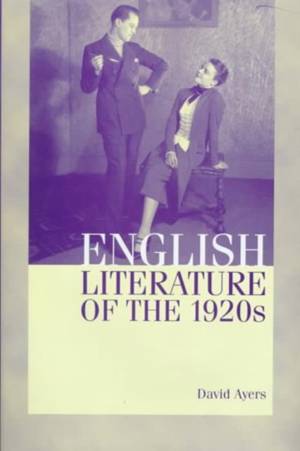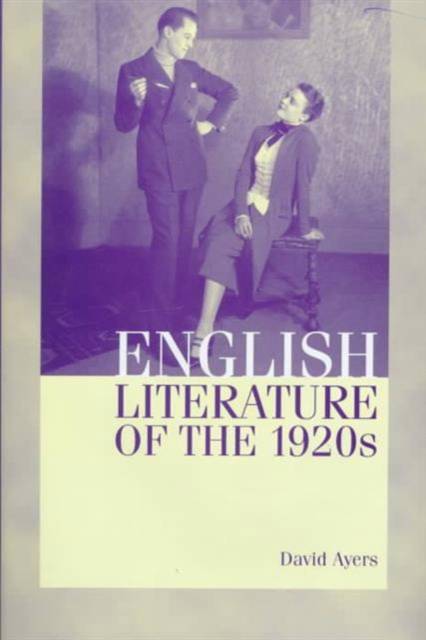
- Retrait gratuit dans votre magasin Club
- 7.000.000 titres dans notre catalogue
- Payer en toute sécurité
- Toujours un magasin près de chez vous
- Retrait gratuit dans votre magasin Club
- 7.000.0000 titres dans notre catalogue
- Payer en toute sécurité
- Toujours un magasin près de chez vous
Description
The English literature of the 1920s is commonly treated in terms of its position within European or Anglo-American Modernism. This book argues that the English literature of the period can be better understood when it is examined in the context of a more local social and literary history. Focusing principally on the novel, this book treats works that are regarded as modernist alongside non-modernist and popular forms, and demonstrates the engagement of these texts with a common context of social concerns, including sexuality, gender and class politics, Englishness, empire, and the cultural pessimism which informed the formation of English as a modern university subject. The book includes major new accounts of the best-known works of the period which challenge received wisdom on these subjects, including studies of D H Lawrence, Virginia Woolf and E M Forster. These accounts are set in the context of a variety figures who are now becoming better-known to the non-specialist, including Rebecca West, Wyndham Lewis, Aldous Huxley and Sylvia Townsend Warner. The First World War heralded the creation of the modern state and of a modern culture which in its essential outline remains with us. Rejecting a current trend to dismiss modernism as an elitist cultural movement, Ayers argues that the work of this period which most commands our attention remains that which most decisively articulates a critique of the emergence of modernity. The task of the critic is to disengage the utopian moment of works which seek to create a space for difference even where these works are mired in the confusions of contemporary ideology.* Concise accounts of the social and political contexts of the 1920s* Sustained and theoretically sophisticated accounts of key works by D H Lawrence, Virginia Woolf and E M Forster* Extensive treatment of a selection of other works, including contemporary best-sellers* A substantial bibliography
Spécifications
Parties prenantes
- Auteur(s) :
- Editeur:
Contenu
- Nombre de pages :
- 248
- Langue:
- Anglais
Caractéristiques
- EAN:
- 9780748609857
- Date de parution :
- 16-04-99
- Format:
- Livre relié
- Format numérique:
- Genaaid
- Dimensions :
- 155 mm x 236 mm
- Poids :
- 521 g

Les avis
Nous publions uniquement les avis qui respectent les conditions requises. Consultez nos conditions pour les avis.






